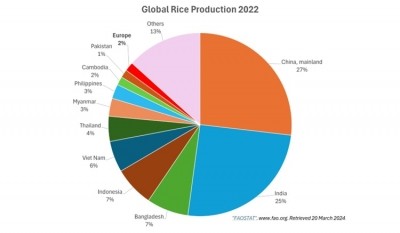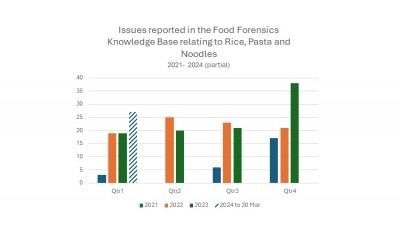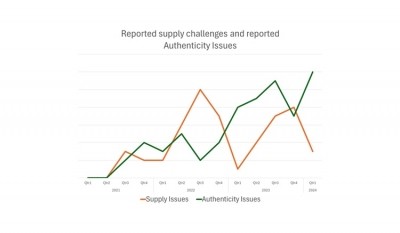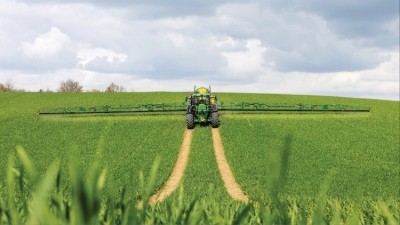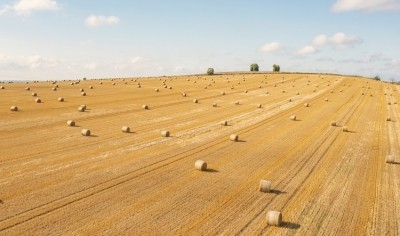Food Forensics
Rice market teeters on risky ground
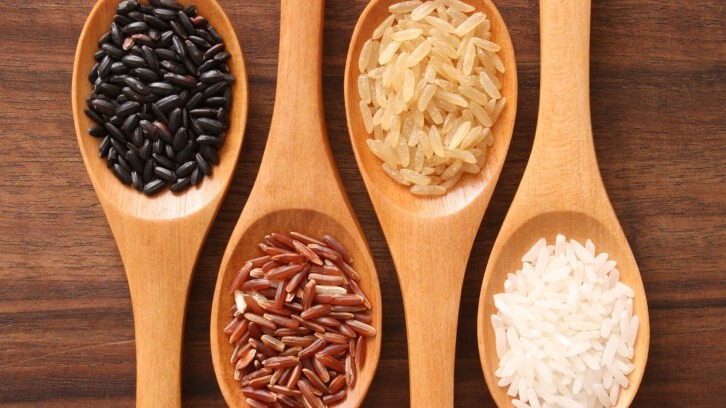
As climate change continues to exert its influence on agricultural ecosystems, the global rice production landscape is facing unprecedented challenges.
The delicate balance of hot and humid conditions essential for optimal rice cultivation is increasingly disrupted, leading to fluctuations in production levels worldwide. With rice being a staple food for a significant portion of the global population, the implications of these changes extend far beyond agricultural economics to food security and authenticity.
In 2022, Europe contributed a mere 2% to global rice production, primarily cultivating Japonica and Indica varieties, although Italy also specialises in risotto rice varieties. However, recent years have witnessed a concerning trend of declining production levels in key European rice-producing countries such as Italy, Spain, Greece and Portugal. Extreme temperatures coupled with water restrictions have hampered harvests, exacerbating supply shortages.
India, historically a major player in the global rice market, experienced an unexpected surge in crop yield in 2023, compensating for declines elsewhere. However, in response to domestic demand pressures, India imposed restrictions on rice exports, triggering a ripple effect on international trade and forcing importers to seek alternative sources.
The confluence of diminished supply and sustained high demand creates fertile ground for authenticity risks in the rice market. As prices surge, the temptation to introduce poor-quality or adulterated rice into the supply chain intensifies. Concerns regarding contaminants such as mycotoxins and pesticide residues loom large, with reports indicating a noticeable increase in issues during the latter half of 2023.
Pesticide residues pose a particularly troubling threat, exacerbated by the oscillating challenges of droughts and floods, which compel farmers to adopt aggressive pest management strategies. The correlation between supply challenges and reported issues underscores the predictable nature of these risks, necessitating proactive measures for mitigation.
Looking directly at the correlation between reported supply chain challenges and reported issues illustrates the use of insight as a predictor of issues.
Looking ahead, vigilance regarding mycotoxin levels is imperative, given the likelihood of increased contamination in stored rice due to wet and humid conditions. Moreover, the authenticity of rice varieties, especially renowned types like Arborio and Carnaroli used in risotto, warrants close scrutiny. The decline in Italian rice production underscores the importance of verifying the origin and authenticity of these premium varieties, especially as other countries, such as Taiwan, venture into the development of alternative risotto rice strains.
In conclusion, the evolving dynamics of climate change-induced disruptions in rice production demand a comprehensive approach to mitigate authenticity risks. By staying vigilant, monitoring supply chain integrity, and investing in sustainable agricultural practices, stakeholders can navigate these challenges while safeguarding the quality and authenticity of this vital global food staple.
